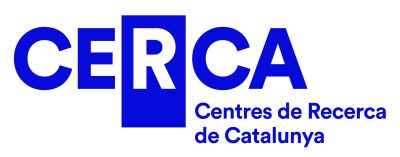
The ICAC publishes the 2023 Activity Report, a year marked by the consolidation of balanced and sustainable growth.
We invite you to explore the summary of the Institute’s activities during 2023; from research projects or scientific production to the various initiatives with which we contribute to the preservation and dissemination of the archaeological heritage of classical antiquity in Catalonia.
The ICAC-CERCA is a dynamic and active research center, focusing on antiquity, both geographically and temporally, understanding the classical and pre-classical societies and cultures of the Mediterranean, peri-Mediterranean, and the European continent.
The study of the ancient world provides us with the pleasure and tranquillity of knowing that we are here thanks to the long path travelled over so many centuries. Nothing is eternal. We live in a constantly changing world.
2023 has been a good year for our centre, with successes such as the consolidation of growth, the stabilisation of staff numbers, and the increase in baseline funding, thanks to the positive outcome of the evaluation of the Institute coordinated by the CERCA Institution in 2022.
L’ICAC-CERCA is heading towards a promising future, with a strong commitment to scientific excellence and continuous growth.
Some important milestones have been the launch of the Social Impact and Transfer Unit (UTIS), in line with the challenges and strategic objectives of the CERCA Institution, the organisation of the 43rd edition of the Annual Conference of the Association for Environmental Archaeology (AEA), which brought together more than 110 experts in environmental archaeology from around the world at the Trade Fair and Conference Centre of Tarragona, and the start of the MAPHSA project: Mapping the Archaeological Pre-Columbian Heritage of South America, funded by the Arcadia Foundation: a pioneering initiative focusing on documenting archaeological heritage in extensive forest and savannah areas of Brazil and Colombia that are at risk of extinction.
Moreover, 2023 has seen a significant change with the retirement of Jordi Peiret, who had been the Institute’s administrator since its creation in 2002. We are grateful for his work and dedication. Dr Maria Gradillas has taken over as the new administrator of ICAC-CERCA, bringing immense energy and efficiency.
We still have great challenges ahead, but we face them with renewed energy and the determination to continue working to position ICAC-CERCA in the best possible place.
The graphic design of the 2023 Report maintains the new and revamped format introduced with the 2022 Report, thanks to the collaboration of designer Francesc Farré. We have worked to provide you with an attractive design and a clear structure that allows you to easily access relevant information.
In addition to new features that facilitate navigation through the document, the 2023 Report includes graphics and infographics to more clearly and concisely visualise the results of our work. These graphic resources help to better understand the scope of our activities and the impact we have on the scientific community and society in general.
About the Catalan Institute of Classical Archaeology (ICAC-CERCA)
The Catalan Institute of Classical Archaeology (ICAC-CERCA) is a CERCA center established as a consortium in 2003 by the Government of Catalonia and the Rovira i Virgili University. It is a Catalan institution with an international scope, at the forefront of research and conservation of archaeological heritage. Its headquarters are in Tarragona, a city recognized as a UNESCO World Heritage Site in 2000. Its researchers work to understand the past through the study of archaeological remains and promote the preservation of the historical legacy. We are CERCA!
For more information, visit www.icac.cat.






